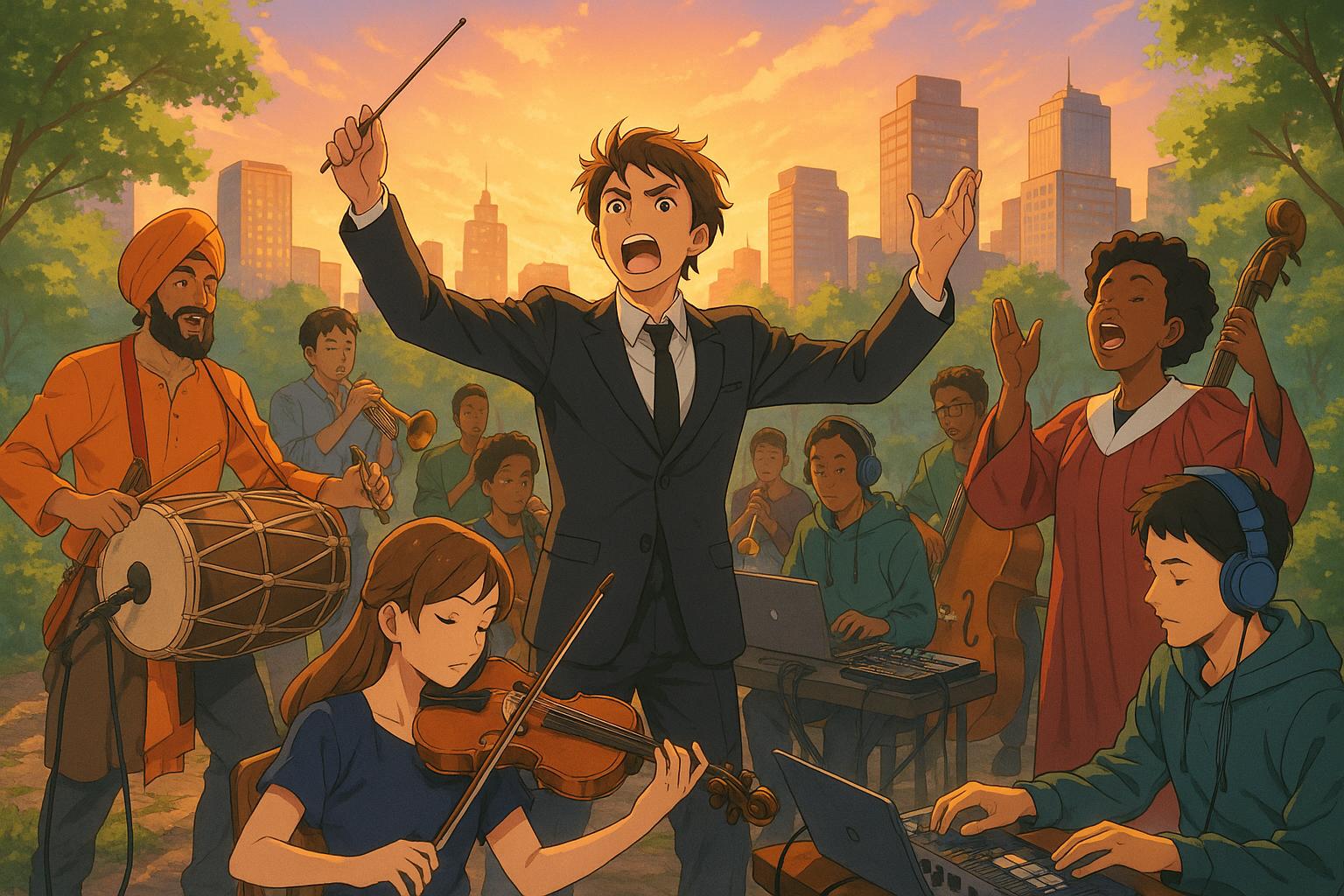In an ambitious celebration of music and community, "The Bradford Progress" promises to transform the city into a vibrant tapestry of sound. Over a span of 36 hours, beginning with the stirring notes of Handel at sunrise on Ilkley Moor, the event will invite around 500 musicians to weave together a dynamic journey through Bradford's diverse musical landscape.
At the helm of this project is conductor Charles Hazlewood, founder of Paraorchestra, and artist Jeremy Deller, renowned for his ability to convey narratives through art. “The whole thing is chaos,” Hazlewood remarked, highlighting the unpredictable essence of urban life. Yet he insists it will be "organised chaos"—a reflection of the city's character, where layers of culture intertwine.
The event, meticulously planned over two years, is not merely a musical relay but rather a continuous odyssey of sound encompassing various genres including classical, bhangra, gospel, and electronic. According to Deller, music serves as a profound storytelling medium that unveils the fabric of a city. He noted, “You find out about the city by the music that’s made in it,” indicating how deeply the cultural identity of Bradford is embedded in its thousands of melodies.
Participants can expect the unexpected: while classical music may emerge from the local parks, the sounds of opera might resonate from modified car sound systems. Such innovative crossovers exemplify the event's core theme of incongruity, as different musical styles blend, creating a communal experience that defies conventional concert settings. Hazlewood expressed his aspiration for the audience to feel an intimate connection with the musicians, “to see the sweat on a trumpeter’s upper lip, to be behind a double bass and feel its vibration.”
One particularly captivating fixture will be a performance of Steve Reich’s "The Four Sections" in the Broadway shopping centre. Hazlewood shared his excitement over this setting, believing it essential to dismantle the barriers traditionally upheld between performers and their audiences. “Orchestras do tend to be these rarefied beasts,” he remarked, illustrating his desire for inclusivity and engagement within musical experiences.
Despite the chaotic prospect of music echoing at all hours—including a nocturnal performance near a cemetery—organisers assure that meticulous preparations are in place. Recorded segments will be available online for those unable to attend in person, ensuring broader accessibility to the rich tapestry of Bradford's musical heritage.
Preceding the main event was a preview in Roberts Park, where a tabla player and singers from Yorkshire's first South Asian women's choir performed alongside Paraorchestra musicians. The event laid the groundwork for what promises to be a monumental celebration of Bradford’s cultural diversity.
Deller distilled the weekend's essence beautifully, urging participants to “just enjoy it”—a call to simplicity amid a complex array of artistic collaborations. The event seeks to bring people together in both familiar and unfamiliar settings, underscoring how straightforward ideas can often involve intricate processes of creativity and collaboration.
In an era when cultural expressions are both vital and transformative, The Bradford Progress stands as a testament to the power of music to unite communities and celebrate their shared histories. As the city gears up for this extraordinary event, anticipation builds for a weekend that captures the spirit of Bradford in all its chaotic, beautiful complexity.
Reference Map
- Paragraph 1: [1], [2]
- Paragraph 2: [1]
- Paragraph 3: [1], [3]
- Paragraph 4: [1], [2]
- Paragraph 5: [1], [5]
- Paragraph 6: [1], [4]
- Paragraph 7: [1]
- Paragraph 8: [1], [6]
- Paragraph 9: [1], [7]
Source: Noah Wire Services
